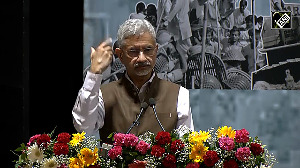According to a report in Environmental News Network, the scientist is Dr. Hussain Bahia, a researcher at the University of Wisconsin-Madison in the United States. Asphalt, which is used to pave over 90 percent of American roads, is processed in Western countries through a process requiring the tar-like substance to be heated to 300 degrees Fahrenheit, an energy-intensive procedure that also produces carbon emissions.
In less wealthy parts of the world, a cold mix approach has long been used. In these countries, the asphalt isn't heated, but is sheared into fine particles and mixed with water and surfactants so it can be spread across a road's surface until it hardens.
Now, Dr. Bahia intends to adapt these African and Indian techniques, developed by road-builders who couldn't afford to heat asphalt to make it pliable, for use in the United States. Under the auspices of the Asphalt Research Consortium, Bahia has established a Modified Asphalt Research Center with the goal of improving asphalt in various ways by developing cold mixtures that blend polymers or plastics with crude oil-derived asphalt.
A prerequisite to such innovation, though - -and to the acceptance of cold-mix asphalt, is the development of solid laboratory tests to evaluate each new mixture's safety and durability. Bahia's team is at work now developing the tests and standards that will allow American engineers and chemists to weigh greener asphalt against conventional mixes.





